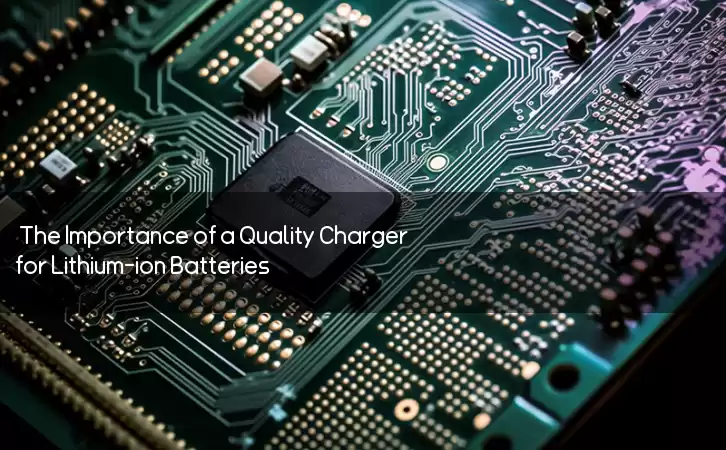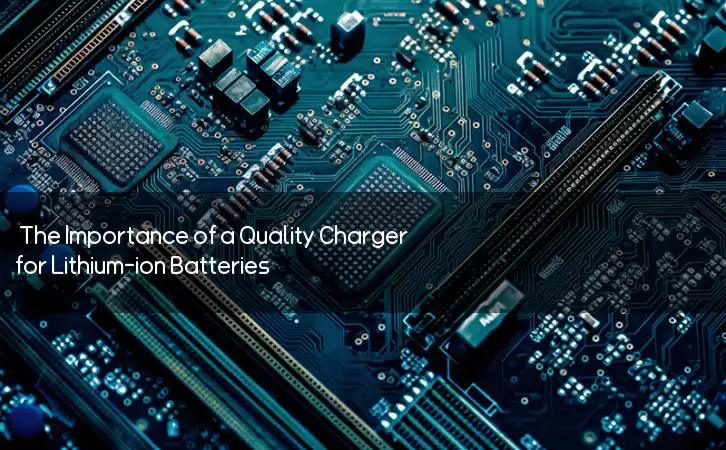Information Center
The Importance of a Quality Charger for Lithium-ion Batteries
Published:2023-07-14 00:34:50 Author:Green WCND Views:52Do Lithium Ion Batteries Need a Special Charger?

Lithium-ion batteries are widely used in electronic devices such as smartphones, laptops, and electric cars. These batteries are known for their high energy density, low self-discharge rate, and long lifespan. Despite their numerous advantages, many people wonder whether lithium ion batteries need a special type of charger in order to be charged properly. In this article, we will delve into this question and give you some insights into the charging of these batteries.

The answer to this question lies in understanding the differences between lithium-ion batteries and other types of rechargeable batteries such as nickel-cadmium (Ni-Cd), nickel-metal-hydride (Ni-MH), and lead-acid batteries. These batteries use different chemistries and have different charging characteristics. For instance, Ni-Cd batteries suffer from the "memory effect" if they are not fully discharged before being recharged, while lead-acid batteries require a specific charging profile to avoid overcharging and undercharging.
On the other hand, lithium-ion batteries have their own charging characteristics that must be taken into consideration. One important point to note is that these batteries do not like to be overcharged or discharged too deeply. Overcharging can damage the battery and reduce its lifespan, while discharging it too deeply can cause irreversible damage and shorten its life. Therefore, it is important to use a charger that is specifically designed for lithium-ion batteries and that can provide a constant voltage and current throughout the charging process.
Another factor to consider is the maximum charging rate of the battery. Lithium-ion batteries have a maximum charging rate that should not be exceeded, as it can cause overheating and damage to the battery. For instance, if a 2000mAh battery has a maximum charging rate of 1C, it should be charged at a maximum rate of 2 amps. Therefore, it is important to use a charger that can adjust its output according to the battery’s maximum charging rate. Many newer chargers today have "smart" charging capabilities and can adjust their output to suit different types of batteries.
In addition, lithium-ion batteries have different charging levels depending on their state of charge. For instance, a battery that is 50% charged may require a different charging voltage than a battery that is 90% charged. Therefore, it is important to use a charger that has a "trickle" charging mode, which can top off the battery without overcharging it.
So, do lithium ion batteries need a special charger? The answer is yes, they do. Lithium-ion batteries require a charger that is specifically designed for them and that can provide a constant voltage and current throughout the charging process. It is also important to use a charger that can adjust its output according to the battery’s maximum charging rate and has a trickle charging mode to top off the battery without overcharging it.
In conclusion, lithium-ion batteries are an essential part of our modern lives, and they require special care and attention when it comes to charging them. By using a charger that is specifically designed for these batteries, we can ensure that they are charged safely and efficiently, and that they last longer. So, if you are planning to buy a lithium-ion battery, make sure to invest in a good quality charger that can give your battery the care it deserves.
Power Adapter Design and Customization Guide for Portable Electric KettlesI. Common Design Types for Portable Electric Kettle Power AdaptersPortable electric ke···
I. Common Design Types of Power Adapters External Independent Type (Most Common) Design: A standalone adapter (e.g., "black brick") connected to the p···
Handheld Vacuum Cleaner Power Adapter Selection GuideIntroductionHandheld vacuum cleaners have become a mainstream tool for household cleaning due to their port···
Drill Power Adapter Selection Guide.drill-container { font-family: Arial, sans-serif; line-height: 1.6; max-width: 800px; margin: 0 auto; padding: 20px; } .dril···





